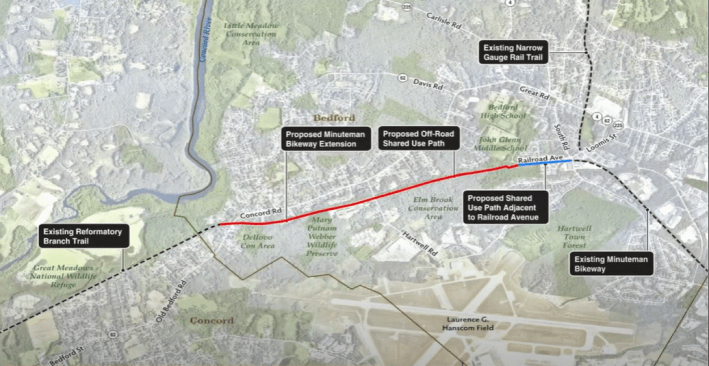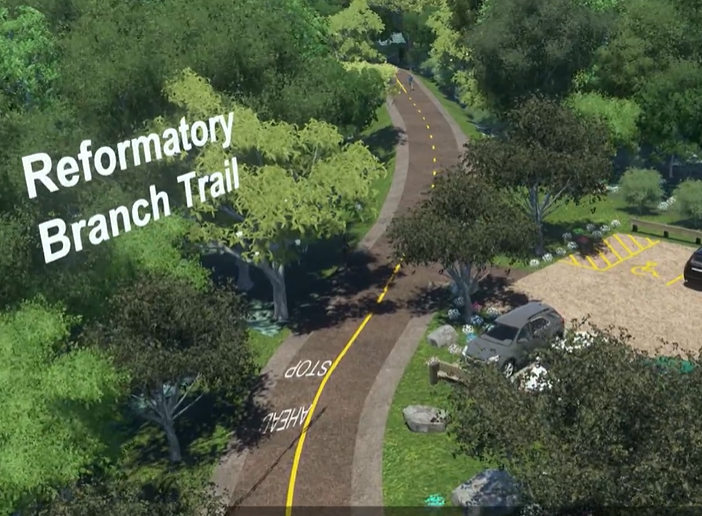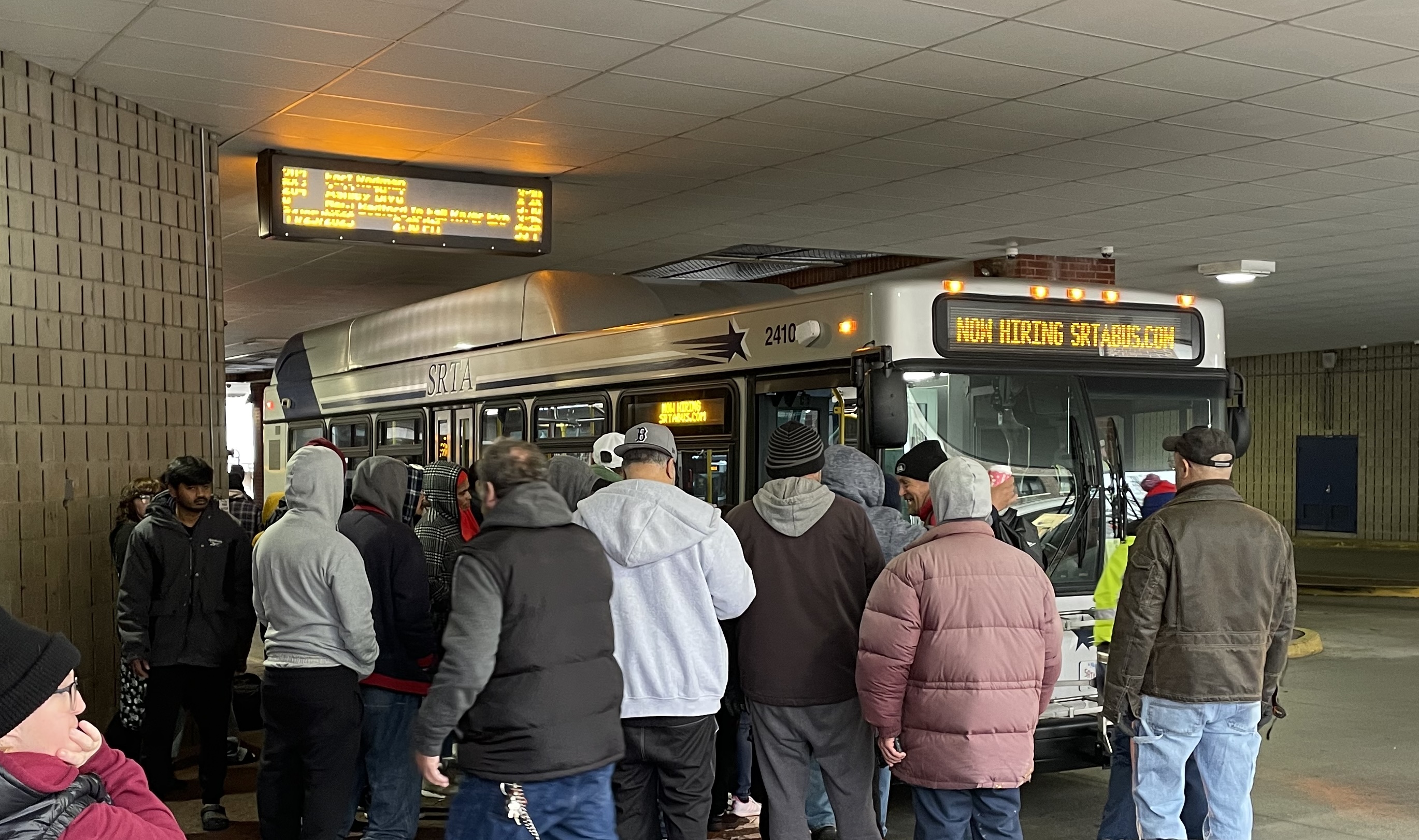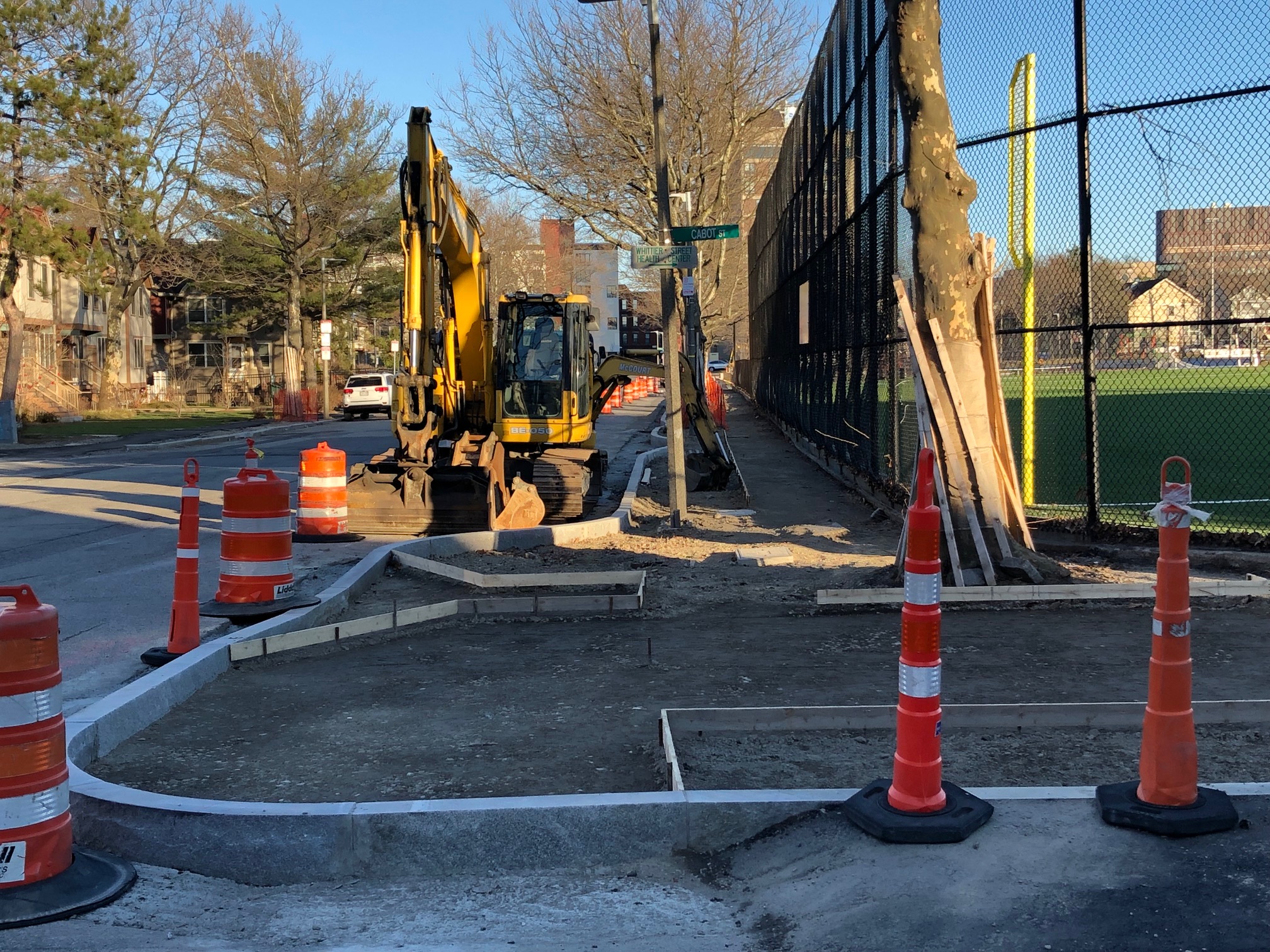In the early hours of Tuesday morning, the proposal to extend the Minuteman Trail through the Town of Bedford failed to pass after residents failed to meet the two-thirds majority needed during Monday evening’s Special Town Meeting.
Inside the packed gym at Bedford High School, residents of the town gathered to vote on several articles, including Article 10, which would determine the future of the Minuteman Bikeway Extension Project.
The proposed project would have extended the Minuteman Trail through Bedford along Railroad Avenue and down the Reformatory Branch Trail, ultimately ending at Concord Street/Route 62, just shy of the Concord town line.
Select Board member Emily Mitchell presented a slideshow of the project’s history and benefits to the large audience inside the gym, as well as additional folks waiting in a separate overflow room watching the presentation via Youtube livestream (which has had over 2,000 views in the day since the meeting).
“Article 10 would grant the Select Board the authority to acquire land and easements to complete the proposed extension of the Minuteman Bikeway which would convert the existing dirt path to a paved shared-use path, improve infrastructure, and create a separated shared use path along Railroad Avenue and construct an underpass for walkers and bikers at Concord Road,“ explained Mitchell.
The project has been contentious among neighbors, with some arguing paving the existing Reformatory Branch Trail, currently a dirt path, would in fact make the trail less safe due to speeding bicyclists. Others argue paving the trail would increase access for more people, including folks who use a wheelchair.
Mitchell’s presentation was followed by testimonies from representatives of the town’s other boards and committees. Among these only the Arbor Resources Committee discouraged fellow residents from supporting the project due to concerns over the loss of trees. Mitchell explained replacement trees would be planted according to the town’s tree policy.
Boards and committees in favor of the project included the following:
- Transportation Advisory Committee
- Bicycle Advisory Committee
- Energy and Sustainability Committee
- Board of Health
- Planning Board
- Trails Committee
And we’re live from Bedford town meeting! pic.twitter.com/fBu4GHTJfX
— Minuteman Biker (@minutemanbiker) November 14, 2022
Like the final vote, comments from residents were split 50/50 between those in favor and those in opposition to the project.
Leah Devereaux, a resident whose husband was diagnosed with amyotrophic lateral sclerosis (ALS), a nervous system disease that weakens muscles and impacts physical function, soon after they moved to Bedford, shared her family's experience and why she supports making the trail more accessible.
“We’re all one accident away or diagnosis away from needing accommodations for accessibility…just because someone can manually push a wheelchair on a dirt path does not make it safe for all wheelchair users,” she said.
“Being pushed in a wheelchair is not independence, and can only be done if someone has an assistant who is strong enough to do so, especially on any slopes or uneven surfaces or like us when I'm trying to deal with our two toddlers and a stroller and all the extra stuff I can't help him and help the kids,” she added.
Mitchell explained that this project is fundamentally about access and safety. “It makes it possible for residents of all ages and abilities to travel on a safe shared car free path. It meets our community goals of increased connectivity and accessibility and makes the Reformatory Branch Trail usable for more people for more of the year.“
Other residents took issue with the proposed use of eminent domain.
“Land taking should be used for essential projects like hospitals, reservoirs..things that benefit lots of people,” said one resident.
“If the (Reformatory Branch Trail) becomes a bicycle speedway, we will be forced to drive somewhere else for safe, peaceful recreation. And for all those who say, ‘We’re saving car trips,’ I say, ‘No you’re not.’I see more car trips resulting from this paving project, not fewer,” she added.
In her presentation, Mitchell highlighted the many trails, more than 30 miles’ worth, and conservation lands available in Bedford, but underscored the unique opportunity residents were about to vote on.
“Trails that can be easily converted into an accessible connected path for all users, however, are scarce. And ones that provide a clear east-west corridor through town are rarer still,” noted Mitchell.
A little past midnight, after about an hour of people casting their votes, Bedford’s moderator, Mark Siegenthaler, announced, “Article 10, total number of ballots cast, 1,074. Those in favor, 537. Those opposed, 537. I declare that Article 10 has failed.”
A two-thirds majority was needed for Article 10 to pass.

The rejection of Article 10 also means the town will lose the $11 million in state funding tied to the project, along with other components of the project, which would have included a new shared-use path along one side of Railroad Avenue, and a new sidewalk on the other side.
Railroad Avenue, a key corridor for students and people traveling to and from the local high school and middle school, as well as nearby commercial areas, currently has minimal pedestrian accommodations, and often floods.
The project also would have built an underpass at Concord Road/Route 62, where, according to one resident’s testimony at the town meeting, two people have been struck since March while attempting to cross the existing crosswalk.
Together, improvements to Railroad Avenue and Concord Road/Route 62 would cost the Town of Bedford $5.2 million.






